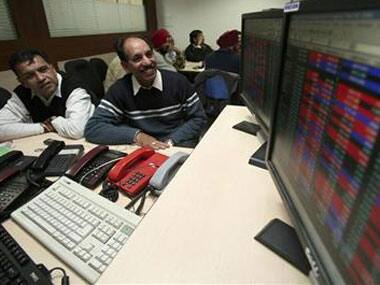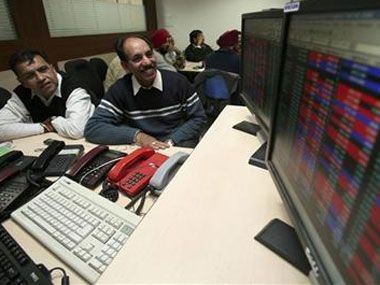The markets have given a thumbs up to Raghuram Rajan, but is keeping its fingers crossed on the anointment of Narendra Modi as the BJP’s prime ministerial candidate.
Modi was officially announced as the BJP’s prime ministerial candidate on Friday evening after market hours, but news of his elevation was in the public domain by the afternoon. But apart from a few Adani Group stocks (the group is rumoured to have close links to Modi), the market did not move an inch for the simple reason that there there is still a nine-month-long wait for the elections to deliver a verdict.
“Narendra Modi has not become PM yet. But, this is the first time after 1984 that people are rallying around one person. It is now up to the BJP to convert that into votes. If BJP can get people to vote then it has a very good chance of forming the next government. As far as North India is concerned, the numbers will surprise. If BJP forms the government and Narendra Modi becomes the prime minister, it will be huge positive for the economy and if it is a huge positive for the economy, it is going to be positive for the equity market as well,” Vijai Mantri, MD & CEO, Pramerica Mutual Fund, was quoted as saying by The Economic Times today.
[caption id=“attachment_1111425” align=“alignleft” width=“380”]  Reuters[/caption]
However, last week, CLSA’sAsia-Pacific Chief Equity Strategist, said in an interview to _ET: “_The Indian stock market’s greatest hope in this respect is the emergence of Gujarat Chief Minister Narendra Modi as the BJP’s prime ministerial candidate.” He added that the odds are stacked up against him but the “worse the sense of crisis the better Modi’s chance of winning”.
This is because the markets haven’t gained much in the last five years as the economy has slowed to its lowest and the UPA’s populist measures have hindered growth.The government lacks credibility in the eyes of investors. The finance minister continues to walk alone and it seems the markets are tired of waiting for the UPA to get its act together.
India is currently staring at a sovereign downgrade as economic fundamentals continue to head south and the currency has gone into free -fall - at least till recently.
According to an HSBC report, India faces the most difficult situation as the country’s growth is slowing, inflation remains elevated and it has a sizeable current account deficit. Earlier this week, leading agency Standard & Poor’s had said it will maintain its negative outlook for India as currency depreciation is adversely impacting investor confidence.
And investors believe that unlike Manmohan Singh,Modi has the drive to salvage a sagging economy and make India a regional superpower.
Arun Kejriwal, director KRIS, is quoted in a Times of India report as saying that there are three reasons why Dalal Street wants Modi to become the PM.
First, he has been able to instill faith among people about his ability to lead with speed.
Second, people believe that he can give a clean administration with the ability to implement plans.
And third they believe in Modi’s vision.
In other words, foreign institutional investors view Modi as business-friendly given his track record in Gujarat.
And not just investors, even India Inc is betting on Modi to be the next prime minister of India.
A recent poll of 100 chief executive officers surveyed for the Economic Times by Nielsen showed that nearly three-quarters of Indian business leaders believe the government has mismanaged the economy and want Modi to lead the country.
Recently, noted economist Jim O’Neill also endorsed Modi as the right candidate for the top job. “He’s good on economics, and that’s one of the things India desperately needs in a leader,” said O ‘Neill in his blog.
According to O’Neill, India needs to get 10 things right if it is to realise its potential: among them, it needs to improve its governance; fix its primary and secondary education; raise its colleges and universities to world-class; adopt an inflation target, and make it the focus of a macroeconomic policy framework; introduce a medium-to long term fiscal-policy framework, with ceilings; increase trade with its neighbours, including China; liberalise financial markets; introduce farming innovations; build more infrastructure; and protect the environment.
“Modi is right: Whoever leads the next government in 2014, India needs maximum governance and minimum government,” he wrote in his blog.


)
)
)
)
)
)
)
)
)



